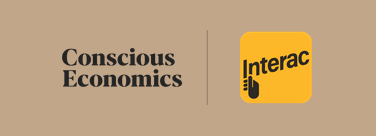 A survey by Interac Corp. (Interac) released Wednesday (Nov. 8) on Canada Newswire found 70 per cent of new Canadians polled believe they are more susceptible to financial scams than the general population.
A survey by Interac Corp. (Interac) released Wednesday (Nov. 8) on Canada Newswire found 70 per cent of new Canadians polled believe they are more susceptible to financial scams than the general population.
53 per cent of newcomers say they and/or immediate family members have been targeted by fraud, while 55% are very concerned about becoming a victim in the future.
Scammers appear to be preying on a record number of immigrants arriving in Canada, who have to navigate an unfamiliar financial landscape. The top scams they face include fake job postings (witnessed by 40% of new Canadians surveyed), phishing attempts (37%) and scammers disguising themselves as representatives of official government institutions (34%)
“Being targeted for financial scams is an all-too-common experience for newcomers. We all have a role to play in providing advice to help build their financial literacy and spot scams before it’s too late,” says Rachel Jolicoeur, Director, Cybermarket Intelligence and Financial Crime at Interac. “Newcomers want to feel in control and most prefer to spend their own money versus borrowing. As they get used to life in Canada, we need to build their trust when transacting in new ways – such as using Interac e-Transfer or Interac Debit for the first time.”
The Interac survey reinforces that high scam rates are taking a toll on the financial fortitude of newcomers. Only 22% of newcomers polled strongly agree they would know what to do if they were the victim of a financial scam. 56% say being targeted makes them feel less financially confident, compared with 36% of all respondents polled.
New digital learning program helps arm against fraud
73% of these newcomers to Canada want to learn more about how to protect themselves from fraud, and 83% see the value of having access to tools that help manage their spending. Seeing as November is Financial Literacy Month, Interac and Conscious Economics have teamed up to offer Mindfulness & Money for Newcomers and International Students, a digital learning program that teaches financial literacy and fraud prevention techniques.
The three-part course is available free and online to all newcomers who wish to participate, with modules in multiple languages. The program will be a part of the international student’s orientation package at Toronto Metropolitan University (TMU).
The course Interac developed with Conscious Economics is designed to provide newcomers with a supportive community and establish the fundamentals of financial and digital literacy, says Daria Hill, Interac’s Vice President, Marketing & Communications.
The Interac survey also reveals that 63% of newcomers prefer to spend their own money rather than borrowing. Using their own money (43%), as with Interac Debit, ranks among the top three strategies newcomers would turn to in order to boost their financial confidence, alongside following a budget (55%) and having savings or investment goals (60%).
Background on the research
The online nationwide survey was conducted by Discover among 1,202 respondents, age 18 years and older. The sample was comprised of a core sample of 1,000 Canadian adults, plus oversamples of 207 newcomers/new Canadians (defined as those who immigrated to Canada after age 18 and have lived in Canada for less than 10 years) and 99 international students currently studying in Canada. The survey was fielded in English and French from September 28 to October 6, 2023.
To learn more about fraud prevention techniques, visit In The Know.


